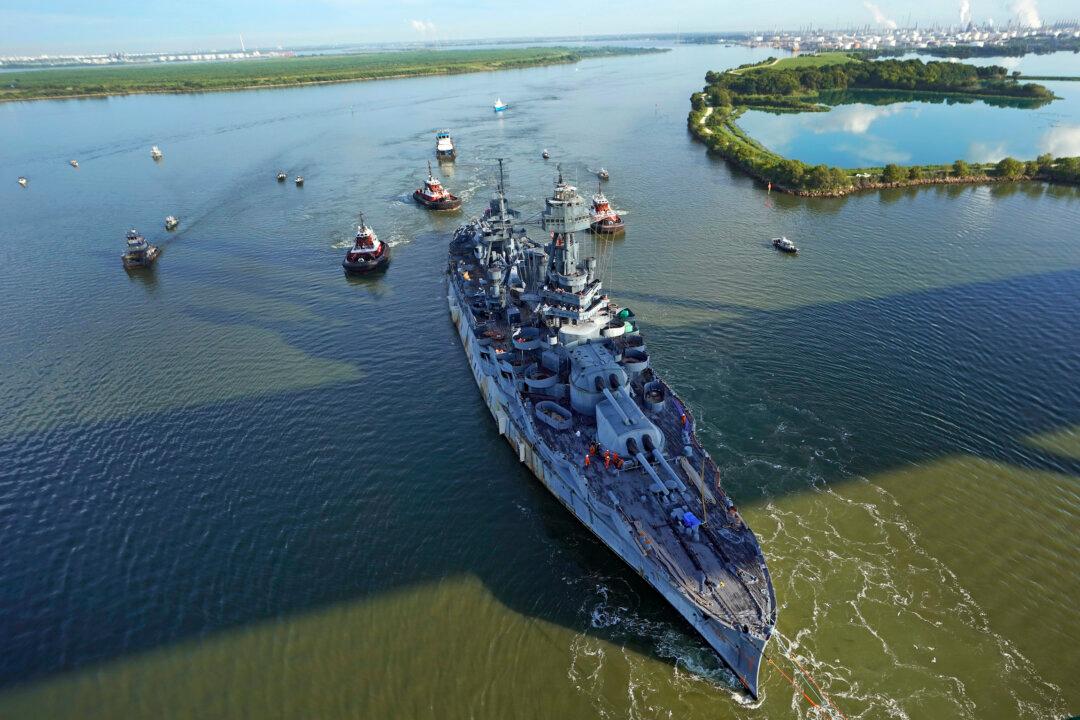LA PORTE, Texas—It’s the only surviving battleship that served in both world wars, having fought in Europe during World War I and against the Nazis and the Japanese Army during World War II. But the greatest challenge in recent years for the USS Texas has been a leaky, rusty hull that at times forced workers to pump out about 2,000 gallons (7,570 liters) of water per minute from the 110-year-old ship.
To ensure the historic vessel, commonly known to Texas residents as the Battleship Texas, doesn’t sink and can continue hosting visitors, the foundation in charge of its care successfully towed the ship on Wednesday from its longtime home along the Houston Ship Channel to a shipyard in Galveston for repairs.





